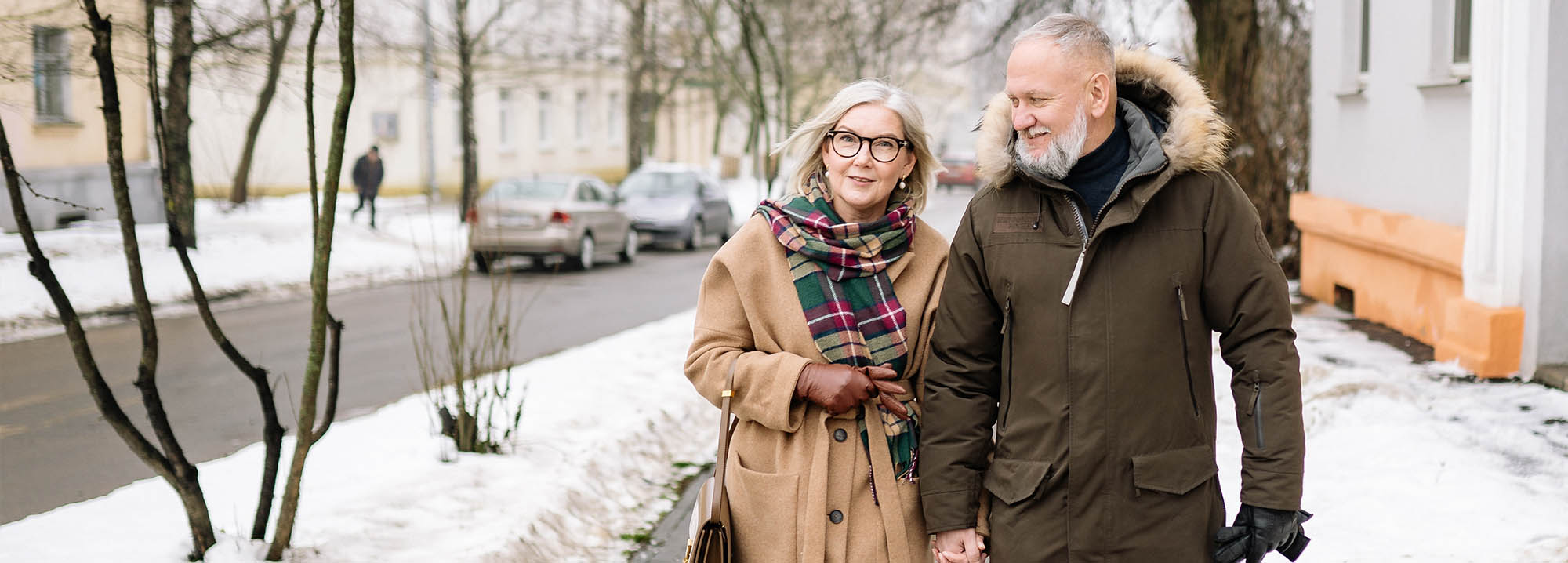
Ways to Stay Active During the Colder Months
Importance of Protecting Your Mental and Physical Health
As the weather changes in Cleveland, the temperatures get colder and the amount of daylight dwindles. Some days there are snowy and icy conditions outside. All of this inevitably makes it harder to get in our recommended amount of daily physical activity. But staying active is so important for seniors’ mental and physical health, including:
- Better sleep
- Reduced anxiety
- Improved balance
- Lowered risks of some illnesses
- Help to maintain a healthy weight
We understand that it can be difficult to stay active during the colder months, but not if you are willing to get a little creative with your planning! These are just a few tips for staying healthy this fall and winter:
1. Stay hydrated. This is a simple way to promote your physical health. By the time you feel thirsty, you are already showing signs of dehydration. Eight cups of water is a good rule of thumb—and one you’re probably familiar with—but you may need more or less water depending on your activity level. Keep in mind that certain medications can contribute to dehydration, making it even more important to stay on top of your water intake. Consider flavoring your water with fruit or drinking out of a favorite cup or mug. Set a goal to drink a certain amount of water by lunchtime and then again before dinner. Make sure you are staying hydrated!
2. Keep moving. The CDC recommends 150 minutes a week of moderate-intensity physical activity for adults—that breaks down to 30 minutes 5 days a week. Some days, the weather may allow you to get outside for a walk and fresh air. Check the weather forecast and plan your outfit accordingly. Dress in light layers that can easily be removed to avoid overheating. On days when the weather keeps you from going outside, find ways to keep moving indoors. Do a short workout video from the comfort of your living room. Consider saving your favorite TV show—or an audiobook you are enjoying—to watch or listen to while you are on the treadmill or a stationary bike. Ask a friend or family member to accompany you to a local mall or store to get in some steps. Anything from walking or wheelchair rolling to housework and sleeping counts as exercise.
3. Stretch. This is important all year long, but especially in the winter months when you may not be as active. Stretching promotes greater movement in your joints, can ease tension and soreness in your muscles, and reduces your overall risk of injury—plus it can improve your posture. There are many reasons to incorporate stretching into your daily routine.
4. Keep your routine during the holidays. It can be difficult to stick to your regular eating habits and exercise routines amid holiday gatherings and celebrations. While an occasional treat or drink is fine for most seniors, try not to overindulge in rich foods or alcohol. Continue to make time every day to stretch and move your body.
5. Get your sleep. The National Sleep Foundation recommends that seniors get 7-8 hours of sleep every night. If you have trouble falling asleep, try to stick to the same bedtime—and wake time—every day of the week. Getting outside during the daytime hours and enjoying the sunlight can also help promote better sleep at night. Also, remember to limit your screen time during the hour before bed—and especially avoid the habit of watching television or looking at a screen while you are in bed. Studies show that the use of screens suppresses our body’s production of melatonin, a natural hormone that makes you feel ready for sleep, and instead increases your alertness.
Our team is always here to help with additional ideas for promoting our seniors’ health and well-being. If you are considering the benefits of moving to a senior living community, please reach out to us. We are happy to answer any questions and provide more information.


